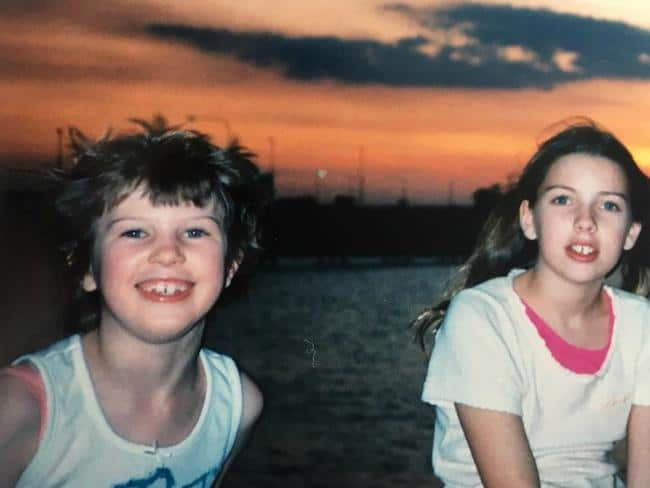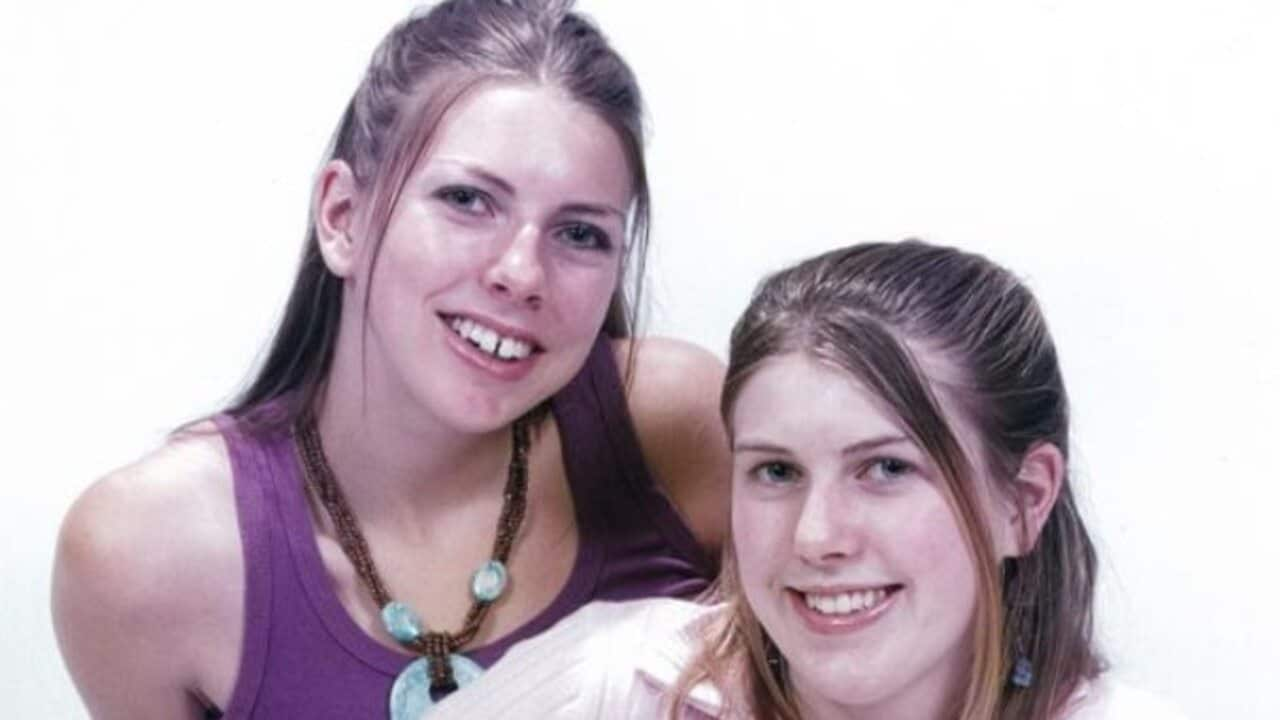Key Points
- Australians are struggling to access drug treatment facilities, potentially leading to dire consequences
- Insight looks at why support is so scarce
Demand for drug and alcohol addiction treatment has escalated since COVID-19. Insight asks people living with addiction, families and experts how can the system do better? Watch Tuesday, September 27 from 8.30pm on SBS On Demand .
Katie Horneshaw always feared for her sister, , who lived with substance addiction and mental illness.
Anna Horneshaw was diagnosed with borderline personality disorder and schizotypal personality disorder, which caused her to experience hallucinations and delusions. As her drug use increased, so did her .
“I said to Mum and Dad, I think this only ends one of two ways - Anna in prison or dead,” Katie said.
Alcohol and drug addiction is a growing problem in Australia, with drug-related deaths steadily rising in recent years.

Anna and Katie as children.
Despite the Horneshaw family trying for years to find help, Katie said her sister was unable to access the long-term residential care she needed.
“So many times, she presented to hospital, saying, ‘Please, I need to be put into some sort of residential facility and held involuntarily because I don't trust myself,’” Katie said.
“It was just never taken seriously.”
In 2015, Anna Horneshaw stabbed her 67-year-old housemate to death. The judge found the killing was unprovoked.

Anna Horneshaw
Katie said her sister’s condition has improved drastically in prison, where she is unable to use substances and is receiving wraparound care.
“If she had just got this support, we think that this terrible tragedy could have been avoided,” she told Insight.
“Obviously, it's not us who's paying the price - it's the victim's family, and it's just this horrible irony for them.”

Katie and Anna as children.
Australians struggling to get help
Before the COVID-19 pandemic, were unable to access treatment services.
Demand for addiction treatment services increased dramatically during the pandemic.
In Victoria, Australia’s most locked-down state, daily wait lists for treatment according to Victoria’s Alcohol and Drug Association. Meanwhile, calls to the National Alcohol and Other Drug (AOD) Hotline according to the Foundation for Alcohol Research and Education (FARE).
Professor Nicole Lee, a psychologist and researcher at the National Drug Research Institute - an organisation that aims to prevent harmful drug use in Australia - said public addiction treatment services are not adequately equipped.
In 2014, a report by found there was inadequate public investment in alcohol and other drug services.
“The public system…[is] underfunded by half...so it doesn't have enough funds to meet demand," she said.
Professor Lee said she believes there has been no significant change in funding since the 2014 report.
A spokesperson from the Australian Government, Department of Health and Aged Care told Insight that since the 2014 New Horizons report, Government investment in treatment services has increased. They said this includes through funding delivered as part of the National Ice Action Strategy as well as other measures which they said provide critical treatment support in areas of need.
"While states and territories have primary responsibility for treatment services, the Australian Government is investing more than $710 million for drug and alcohol treatment services over four years (from 1 July 2022)," the spokesperson told Insight.
"A significant part of this funding is being provided to Primary Health Networks to enable commissioning of locally based treatment services in line with community needs."
Private rehabilitation raising questions
Judy* (not her real name) was admitted to a private rehabilitation facility as part of her parole conditions.
She said she found it unhelpful. She claims the conditions were squalid and patients were forced to listen to gospel music and religious teachings as part of the treatment program.
It was obvious it wasn’t a rehab.
“The first thing that struck me [was] how dirty the place was,” Judy said.
“The filth, flies, and cockroaches and food all over the kitchen benches.”
Professor Lee said in the face of the overloaded public system, desperate people are turning to privately-operated addiction services.
Professor Lee said no accreditation is needed to run a private addiction treatment service, nor are they subject to standards of quality or safety, as they are not considered medical facilities.
“The private sector, aside from the hospital services, is completely unregulated,” she said.
“So, anybody can set up a private rehab without any qualifications or experience to do so.”
Judy believes the person who ran her facility had no qualifications.
“There was no medical on hand, no psychologists on hand,” Judy said.
“It was obvious it wasn’t a rehab.”
The regulation of the system…enables…these dodgy providers to flourish and to be able to operate with kind of impunity.Professor Nicole Lee
In 2020, after an inquiry into the state’s private rehabilitation and counselling sector, the Victorian Health Complaints Commissioner.
The health services watchdog uncovered serious problems, including concerns about the safety and effectiveness of treatments, cleanliness of facilities and exploitative billing practices, with some treatments costing up to $30,000.
“One of the services they looked at was coaching people how to access their superannuation and how to mortgage their houses in order to pay for rehab,” Professor Lee said.
Professor Lee said the private addiction treatment sector needs to be regulated, to bring standards in line with the public system.
“The regulation of the system…enables…these dodgy providers to flourish and to be able to operate with kind of impunity,” Professor Lee said.
Readers seeking crisis support can contact on 13 11 14, the National Alcohol and Other Drug Hotline on 1800 250 015 and the on 1300 368 186.










